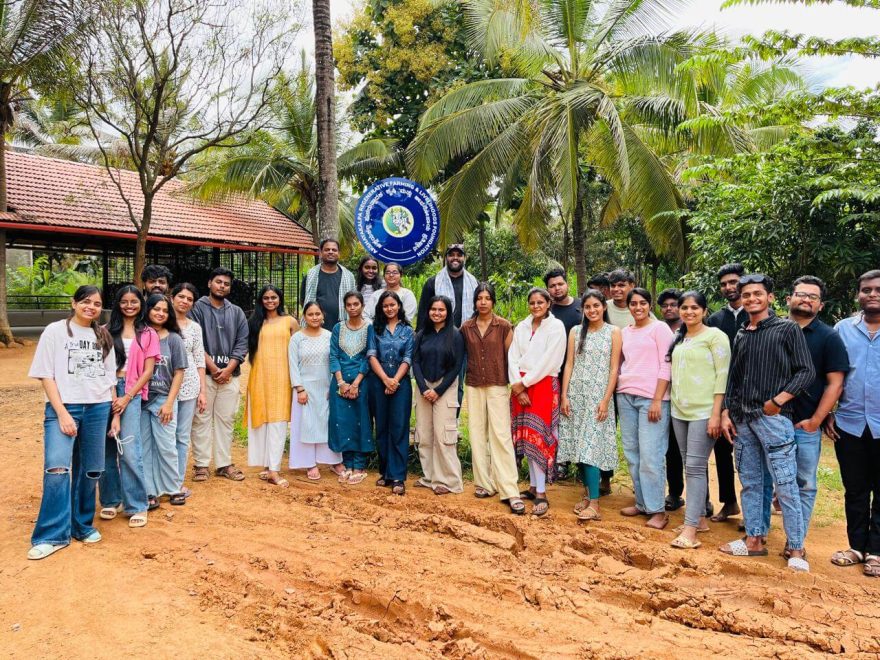The ISBR College Industrial Visit program took students to the Akshaya Kalpa Regenerative Farming and Livelihoods Foundation organic farm in Tiptur, Karnataka, on 17th and 18th September 2025. Coordinated by ISBR College, the two-day visit provided students with an invaluable, hands-on understanding of a sustainable, farm-to-consumer business model.
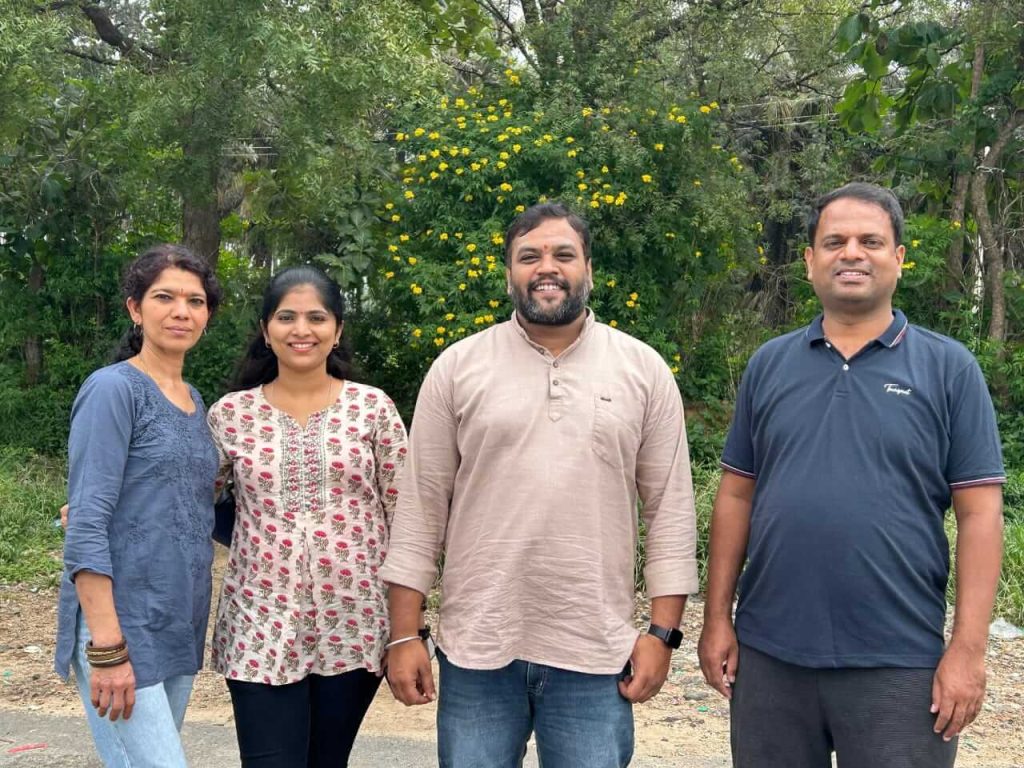
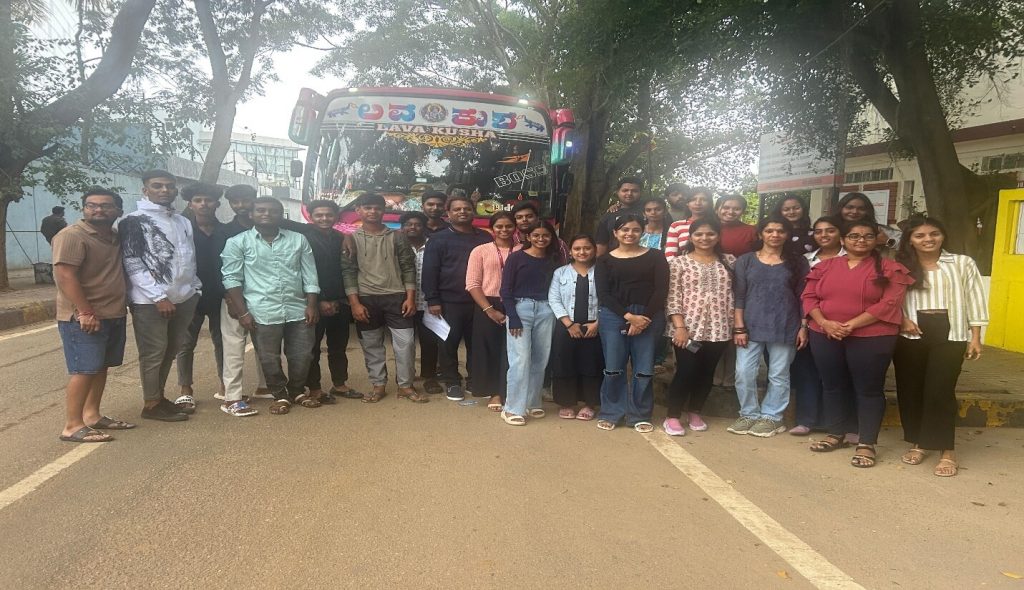
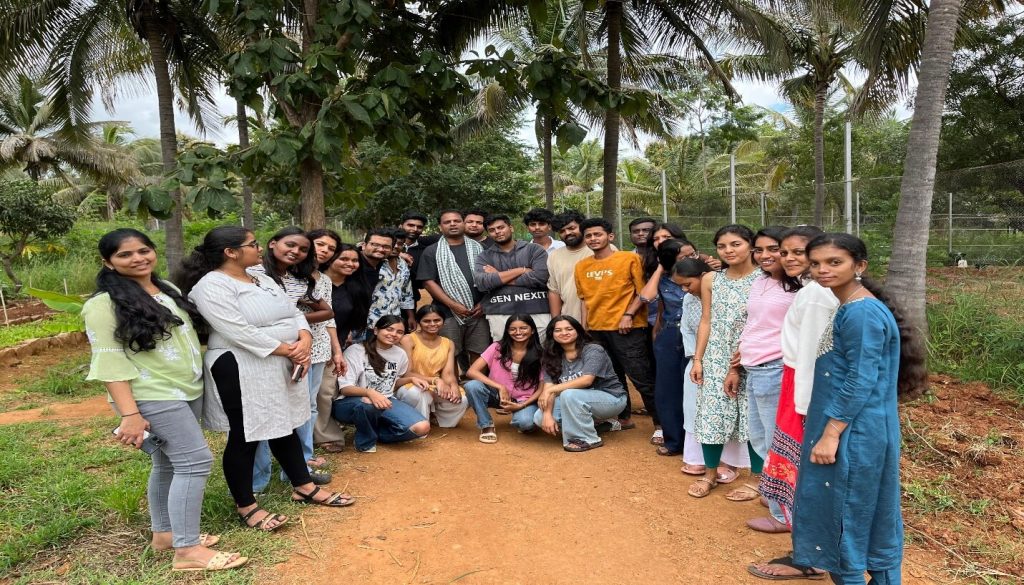
Objectives: Empowering Agri-entrepreneurs
The visit aimed to achieve several key learning objectives:
- Business Model: Analyse Akshaya Kalpa’s unique model of turning local farmers into Agri-entrepreneurs.
- Farm-to-Consumer: Get a clear picture of the entire process, from milk collection and processing to delivery to urban markets.
- Income Diversification: Discover how the company helps farmers create multiple income streams beyond dairy, such as through mushroom farming, free-range poultry, and growing herbs.
- Rural Economy: Witness a compelling alternative to urban migration by seeing farmers earn stable, significant income (up to ₹1 lakh per month).
A Practical Circular Economy in Action
The relevance of the visit centered on the concept of a circular economy. Students observed a self-sustaining system firsthand:
- Cow dung is utilized to generate biogas for electricity.
- The residual slurry from the biogas plant is then used as organic fertilizer.
- This demonstrates a self-sustaining system that reduces waste and external dependencies.
Furthermore, the focus on ethical food production was evident, emphasizing stress-free environments, free-range grazing, and natural veterinary care for the cows.
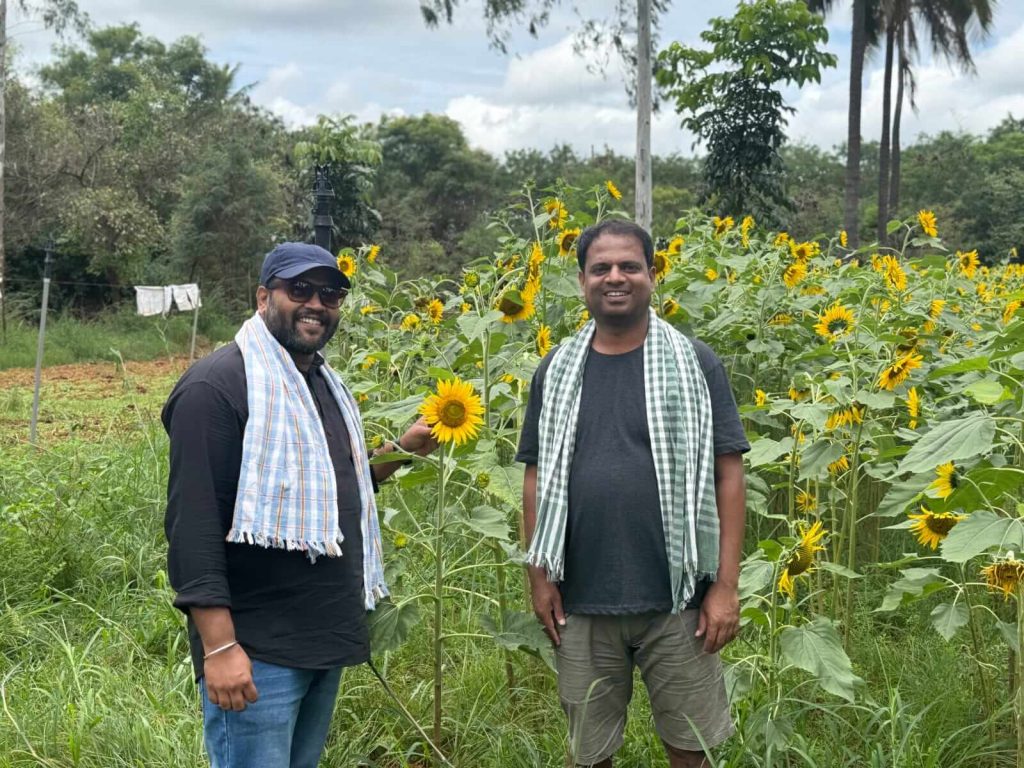
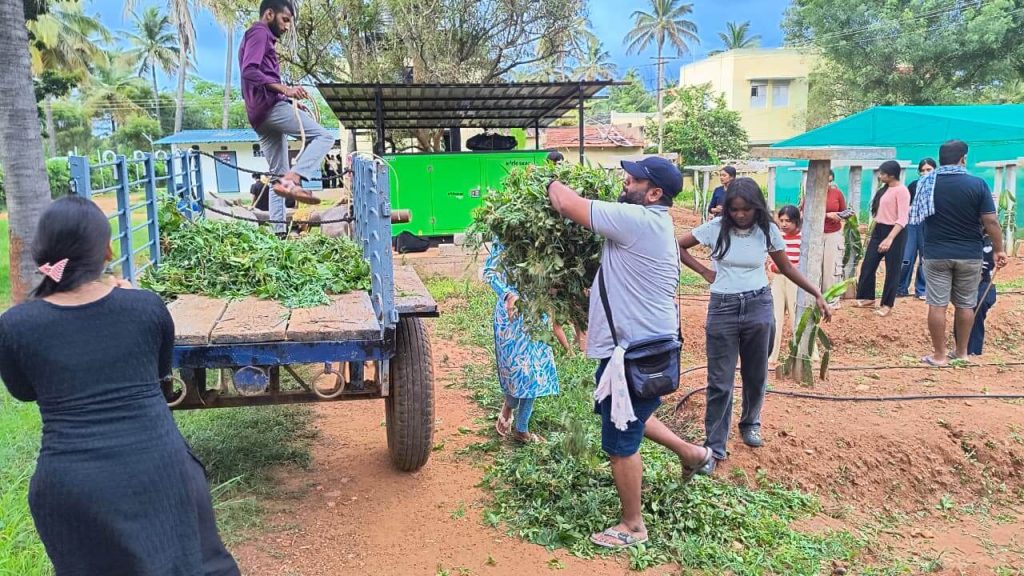
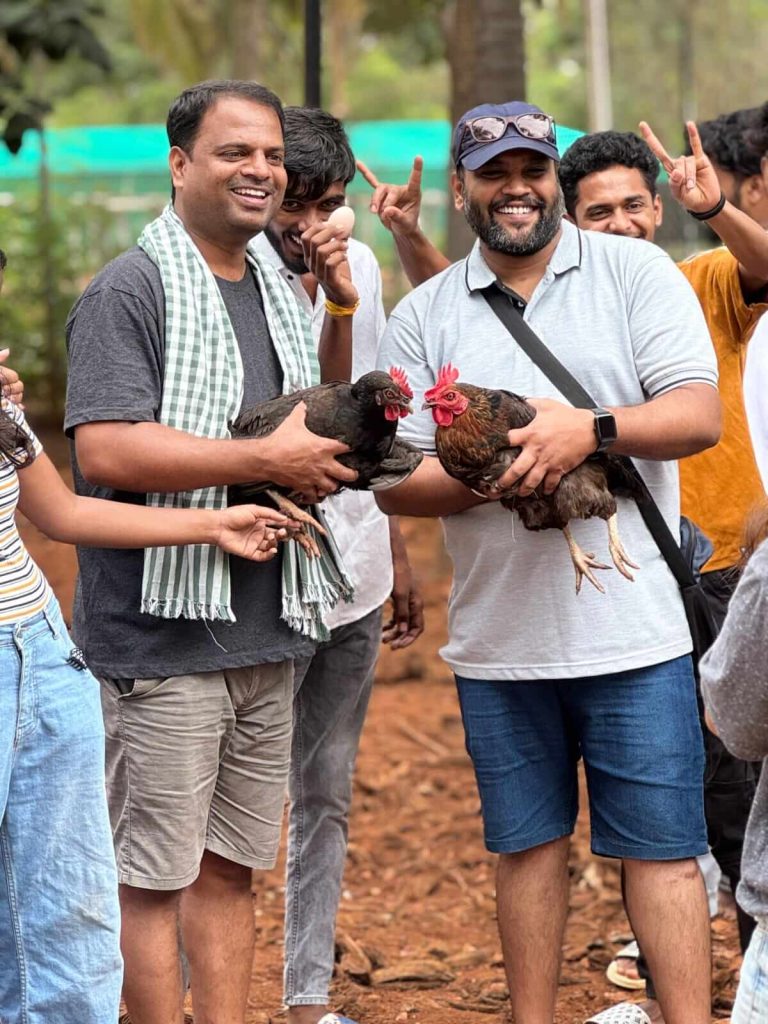
Two Days of Hands-On Organic Learning
The two-day visit was packed with experiential activities that connected the students with serene green nature.
Day 1 Highlights (17th September):
- The team was greeted by exotic birds, seasonal flowers, and fresh vegetables.
- Mr. Ranjith briefed the team on the Jersey Cow, milk production details, and the profit structure for both the farmers and Akshaya Kalpa.
- Students participated in a Kitchen Gardening and Composting session. They placed dry leaves on cow dung to decompose and later used it as organic manure.
- The day concluded with an Organic Vegetable Garden Tour and Animal R&D, where students spent time feeding, petting, and relaxing with the cows and calves. The evening featured a healthy dinner made from Ragi base, a bonfire, and games.
Day 2 Highlights (18th September):
- Ms. Kannika led the day’s activities, starting with students preparing and feeding fodder to the cows.
- The team toured the Bio Gas plant and moved on to vegetable harvesting.
- Students sowed seedlings of vegetables like Palak, Radish, and Carrot and learned about Bee Hiving Techniques.
- The experience wrapped up with tours of the Sunflower, Dragon Fruit, and Brinjal fields , followed by a truly enjoyed Bullock Cart ride.
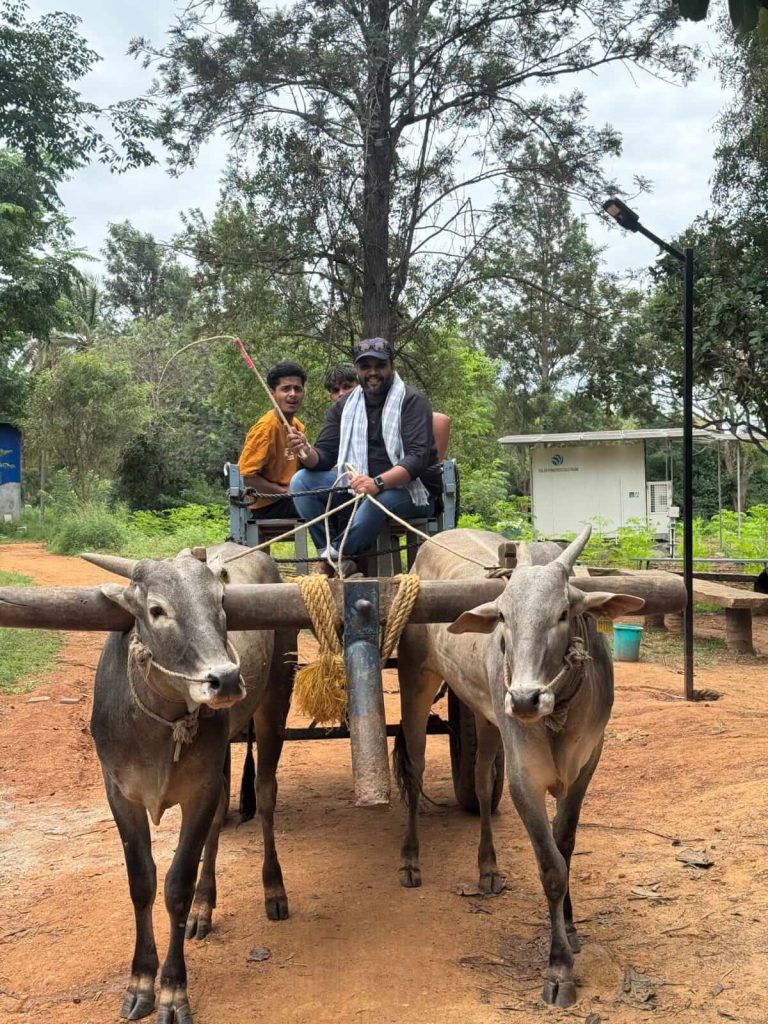
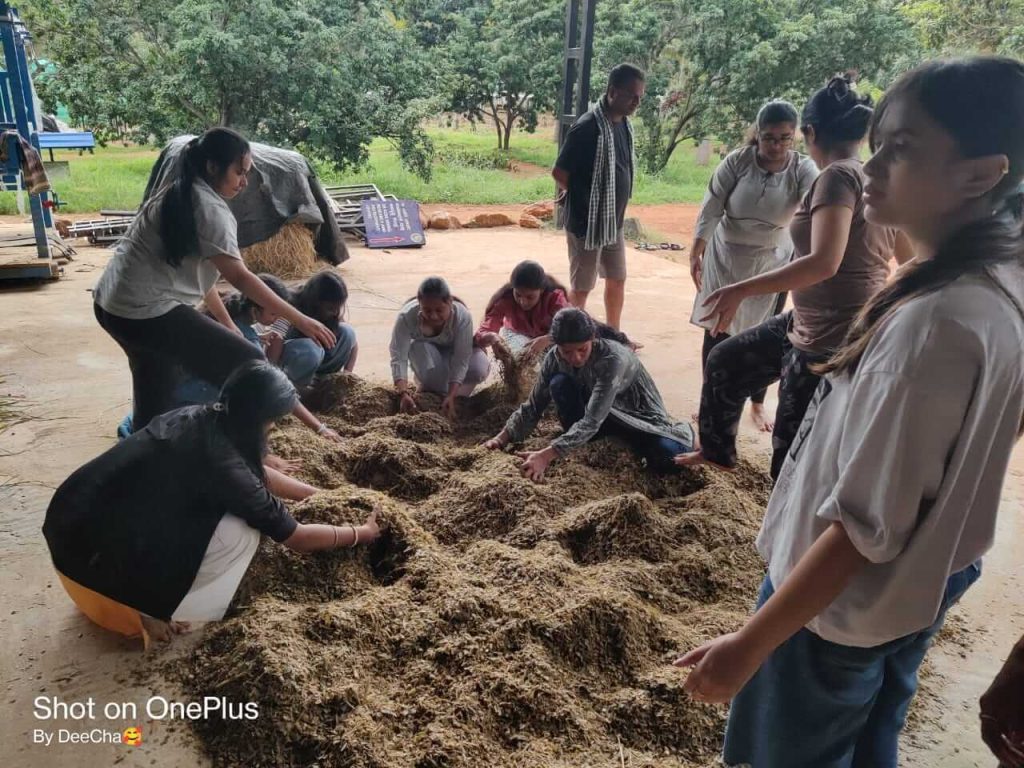
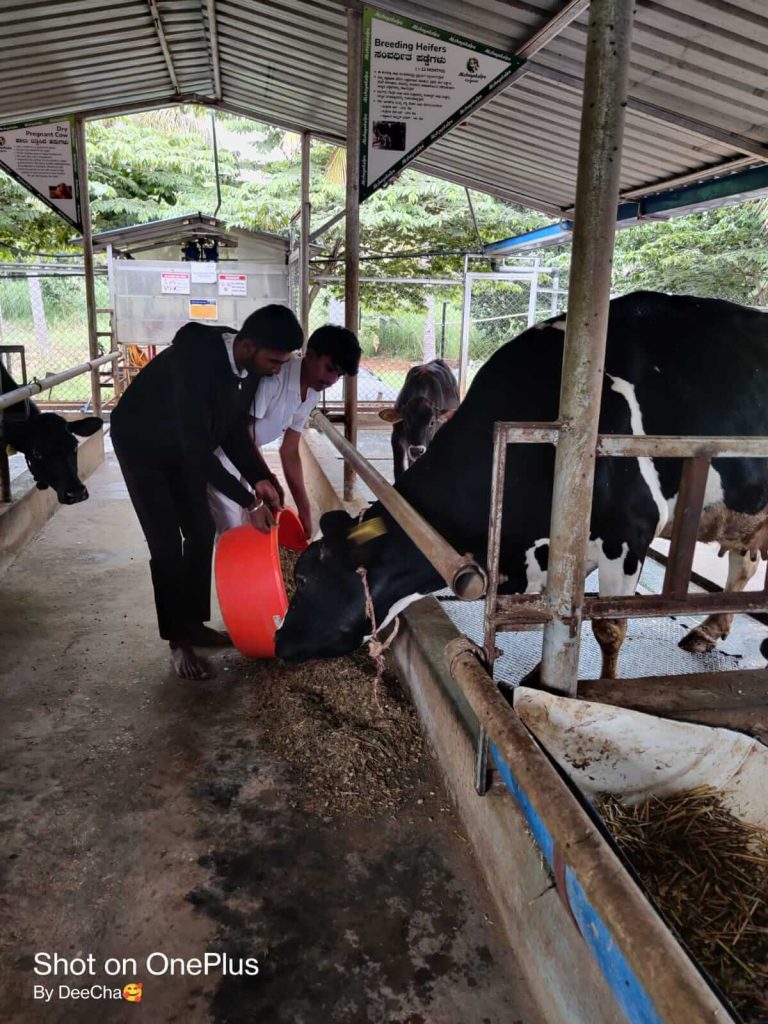
Outcomes: Bridging Theory and Practice
The visit’s most significant outcome was the hands-on exposure to organic farming. Students moved from abstract concepts to a concrete understanding of techniques like composting and natural pest control. The visit reinforced the importance of biodiversity and demonstrated a viable economic model for rural development through diversification and strategic farmer support.

